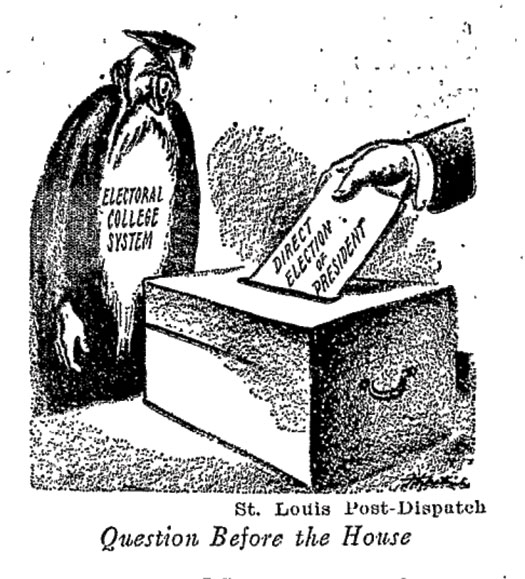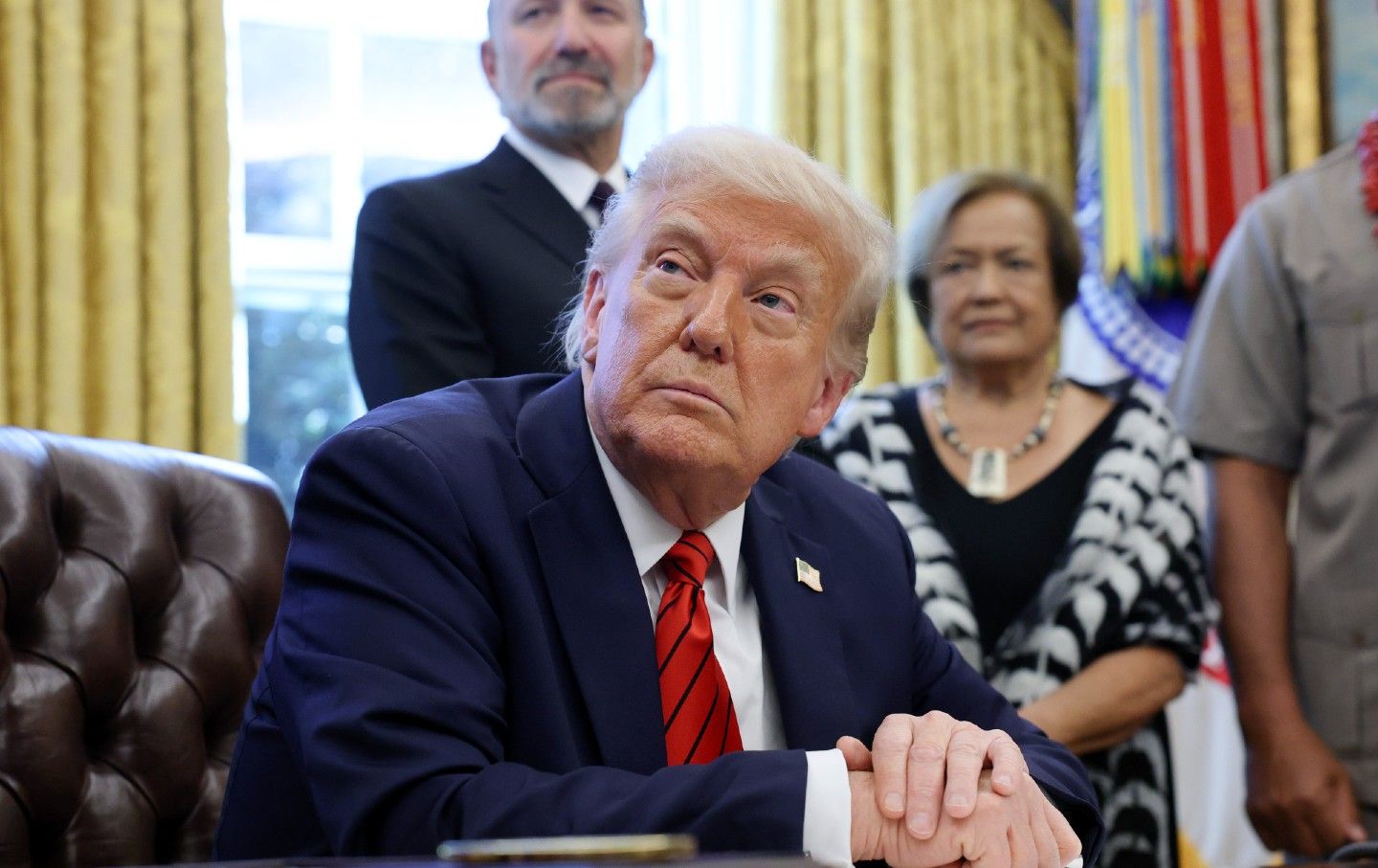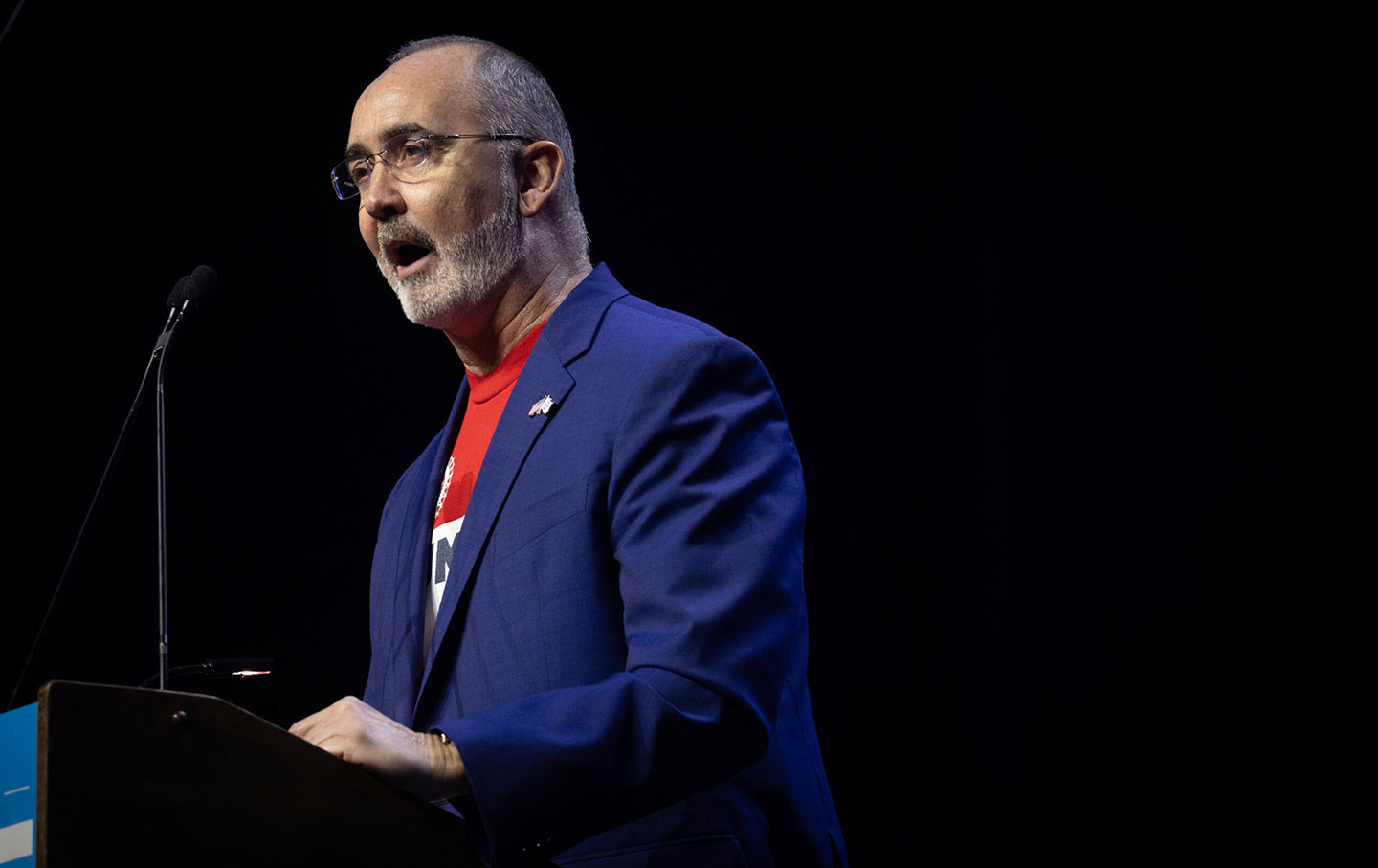A 150-Year Critique of the Electoral College
As far back as the 1870s, The Nation opposed the existence of the Electoral College as “so grotesque as to be almost ludicrous.”

One of the many mysteries that future historians will have to try to explain as they mull what exactly befell the American Republic in the first quarter of this century is our failure to dismantle the decrepit piece of constitutional machinery known, bizarrely, as the Electoral College. Twice already, in 2000 and in 2016, a president was elected despite losing the popular vote—in the latter case, by nearly 3 million ballots. In 2020, the incredibly slow, needlessly complicated tallying of Electoral College votes left an opening for the defeated incumbent to launch an attempted coup d’état. The fact that this year’s gruesome election results spared us such a fiasco is a mighty slim silver lining.
As befuddled as future historians will be, Americans of the past would likewise be horrified to learn we let things go on this long. The Nation has opposed the Electoral College since at least 1876, when competing voter-fraud claims after the heated presidential contest between Rutherford B. Hayes and Samuel Tilden stalled the Electoral College count—and almost led to a second civil war. (Eventually, the crisis ended with a compromise that handed the victory to Hayes, a Republican, in exchange for his agreeing to sacrifice what remained of Reconstruction in the South.)
As the crisis unfolded, The Nation took aim, in an editorial, at the Electoral College. Its continued existence was “so grotesque as to be almost ludicrous,” the magazine said. While Alexander Hamilton had argued in The Federalist Papers that the system was designed to “afford as little opportunity as possible to tumult and disorder,” the Electoral College had never worked as intended. Instead, it had become a national embarrassment: Anyone looking for “a clear case of political sham and humbug,” The Nation argued, could “scarcely find a better instance in any country than the Electoral College of to-day.”
Fast-forward some 85 years, and The Nation was still singing the same song. After John F. Kennedy’s historically narrow 1960 victory, the veteran journalist Ted Lewis noted that a change of a few thousand votes could have swung the election to Richard Nixon. Observing that the close call had produced an “unprecedented public revulsion against the complicated electoral-college procedure,” Lewis warned that the institution would eventually have to be scrapped “when the nation, in some future Presidential election, finds its will has been thwarted to the point where it revolts against the results.” The national will has been thwarted twice since Lewis made that prediction—and still we wait for the revolt.
Hold the powerful to account by supporting The Nation
The chaos and cruelty of the Trump administration reaches new lows each week.
Trump’s catastrophic “Liberation Day” has wreaked havoc on the world economy and set up yet another constitutional crisis at home. Plainclothes officers continue to abduct university students off the streets. So-called “enemy aliens” are flown abroad to a mega prison against the orders of the courts. And Signalgate promises to be the first of many incompetence scandals that expose the brutal violence at the core of the American empire.
At a time when elite universities, powerful law firms, and influential media outlets are capitulating to Trump’s intimidation, The Nation is more determined than ever before to hold the powerful to account.
In just the last month, we’ve published reporting on how Trump outsources his mass deportation agenda to other countries, exposed the administration’s appeal to obscure laws to carry out its repressive agenda, and amplified the voices of brave student activists targeted by universities.
We also continue to tell the stories of those who fight back against Trump and Musk, whether on the streets in growing protest movements, in town halls across the country, or in critical state elections—like Wisconsin’s recent state Supreme Court race—that provide a model for resisting Trumpism and prove that Musk can’t buy our democracy.
This is the journalism that matters in 2025. But we can’t do this without you. As a reader-supported publication, we rely on the support of generous donors. Please, help make our essential independent journalism possible with a donation today.
In solidarity,
The Editors
The Nation








